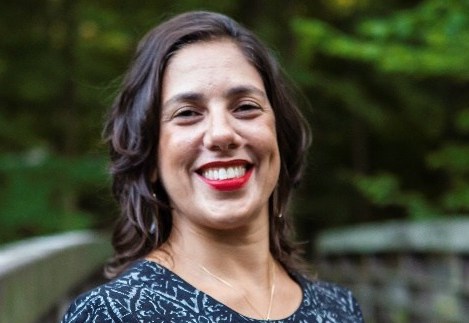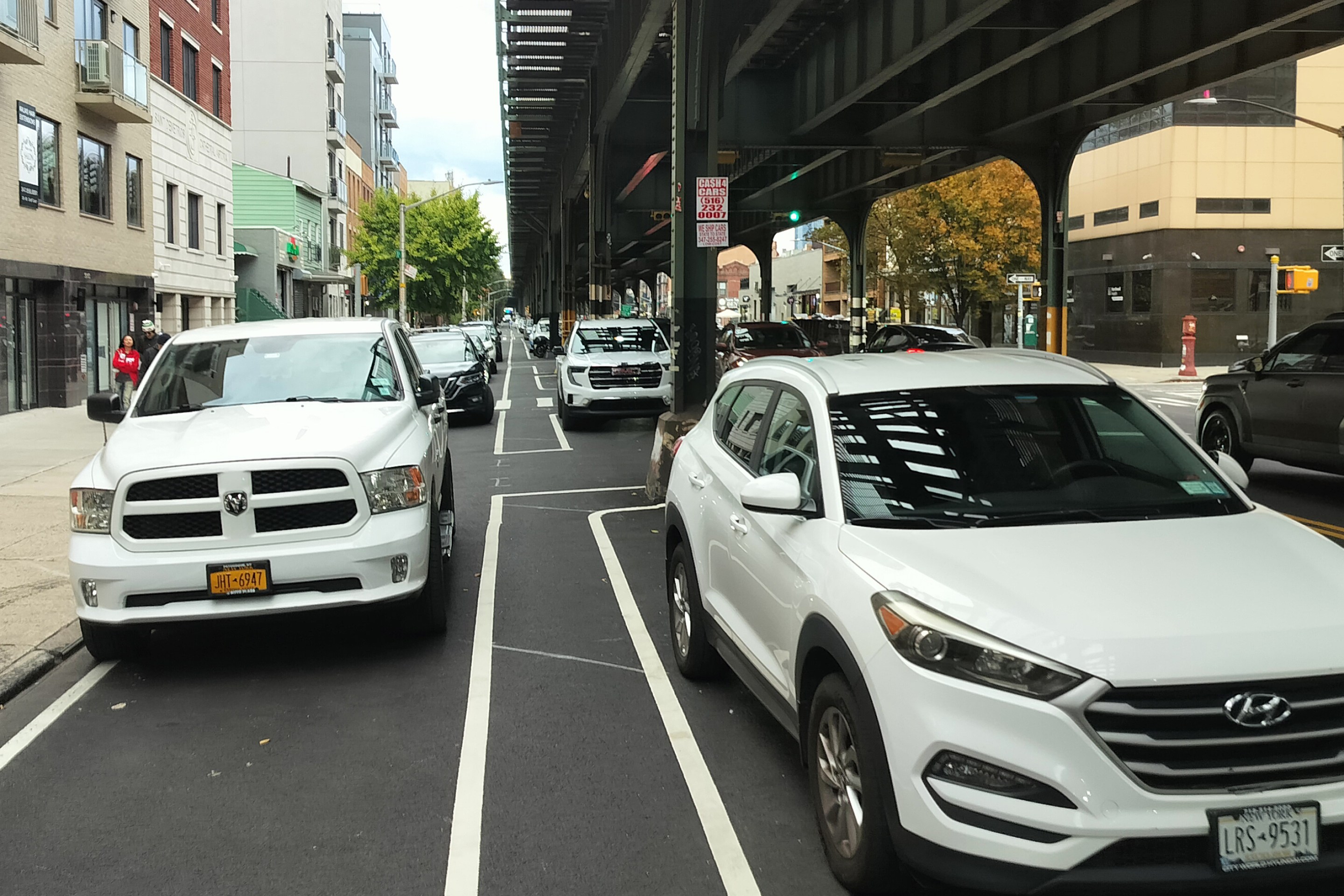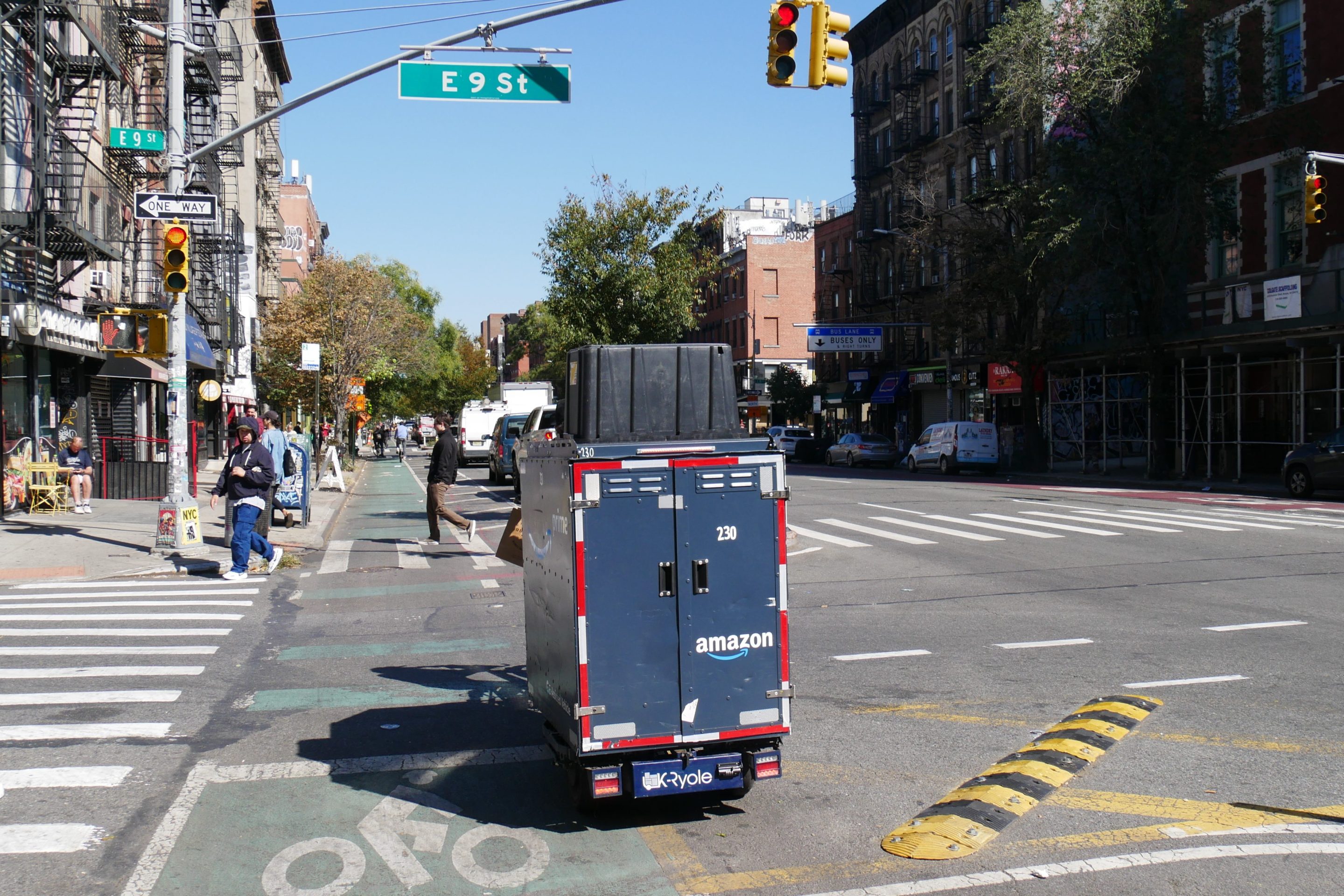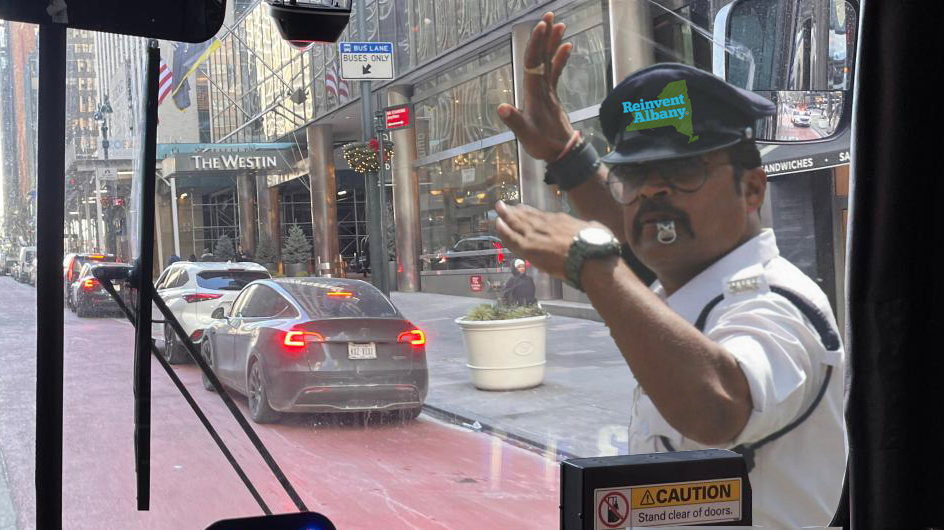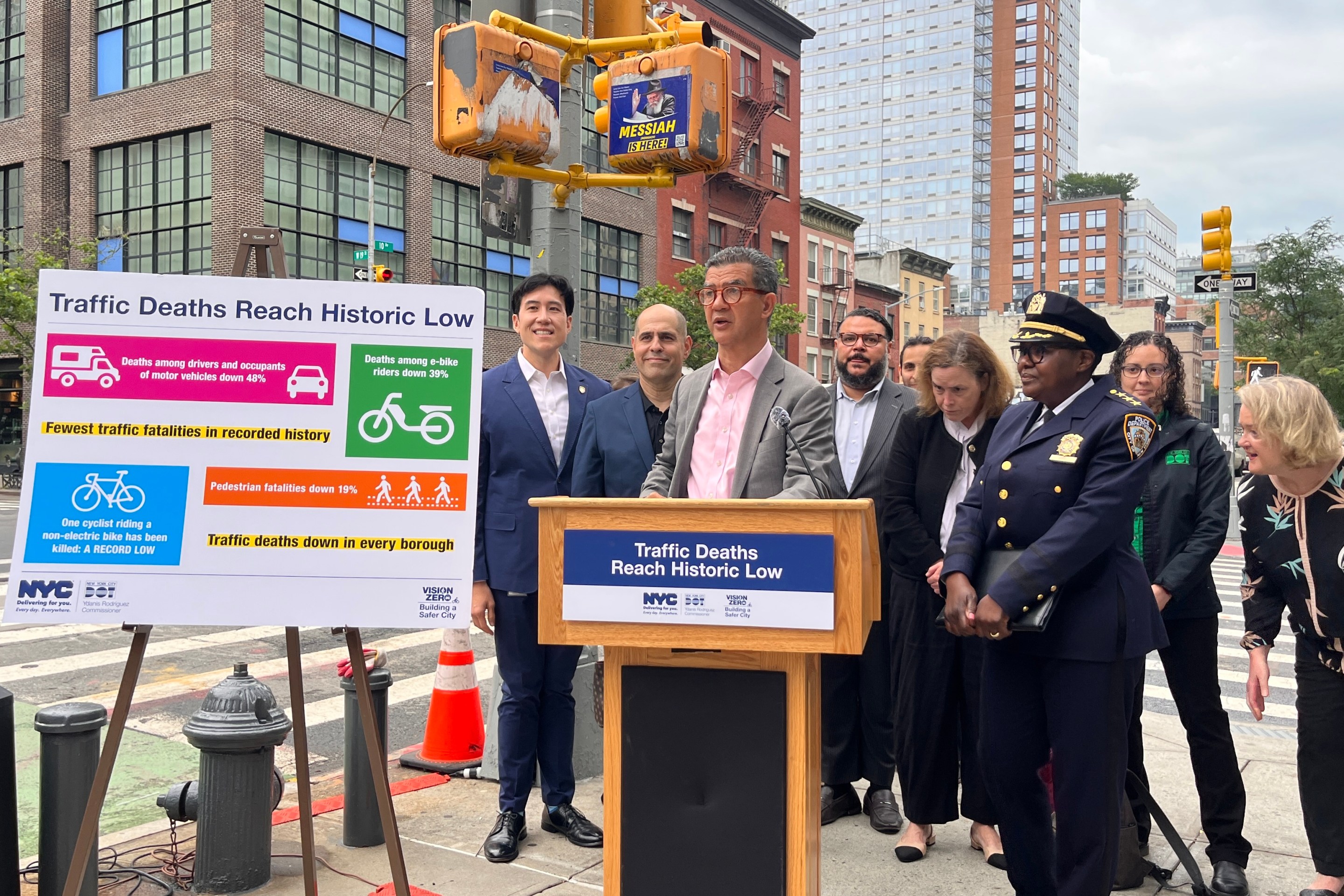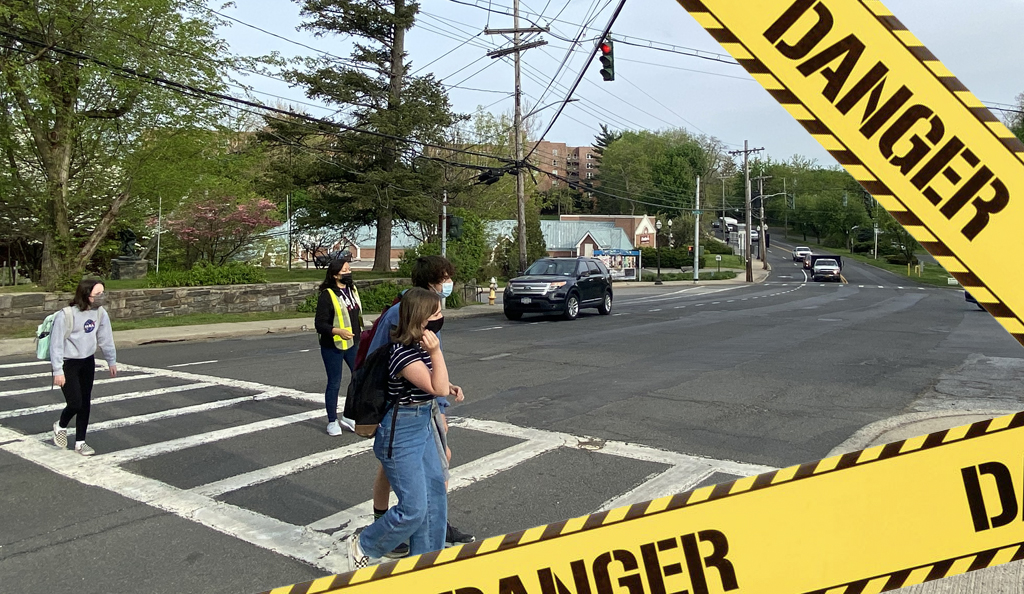Veronica Vanterpool, the Bronx-born transportation wonk and Vision Zero advocate, has resigned from the MTA Board after three years as one of Mayor de Blasio's appointees — but not before issuing a message to her former boss and his frenemy in Albany: can't you guys just get along?
Vanterpool, a former executive director of the Tri-State Transportation Campaign, has landed a job as Chief Innovation Officer for the Delaware Transit Corporation, according to Politico, which quoted her as saying the mayor often ends up "in a responsive, reactive mode" by the three-dimensional-chess-playing governor.
We called up Vanterpool for more dirt, but she said the issue was less about how the mayor has to be more proactive and more about how the city and state need to find a way to stop fighting everything out in the press.
"Being able to talk about things outside of the press is an important strategy for the city-state government dynamic for it to work well, and these politics often play out in the press all the time," Vanterpool told Streetsblog. "That's not a collaborative model for such an important dynamic between New York City and New York State."
The MTA, for instance, accused Mayor de Blasio of perpetuating a "scam" when his administration asked questions about the sequencing of projects in the MTA's historic $51.5-billion 2020-2024 capital plan.
"It would be great to not have to spend energy fighting things but to really be in collaborative dialogue with the MTA on what priorities could move forward," Vanterpool said.
With the MTA's bureaucratic reimagining getting underway, led by Chief Transformation Officer Anthony "Hatchet Man" McCord, Vanterpool said there were two big issues she'd like to see the board focus on going forward. The first is the the makeup of the Traffic Mobility Review Board, the still-unstaffed panel that is supposed to figure out all the nuts and bolts of congestion pricing in the next 12 months.
"It would be best, to everyone's advantage if it was collaborative and not a battle," Vanterpool said.
And the second is a wholesale reimagining of how the MTA could be governed by its board, which Vanterpool said "isn't a real board."
"Now that there's been rightful attention paid to the MTA as a bureaucracy and an agency, I'm hopeful there'll be voices calling to make the MTA Board more effective," Vanterpool said. Most important to the departing city representative is that any governance reform give the board responsibility over the CEO, a position that's currently appointed by the governor (and currently held by Pat Foye).
After Vanterpool departs after next month's board meeting, the city will only have two of its four positions filled. In June, DOT Commissioner Polly Trottenberg stepped down from the MTA Board, reportedly due in part to the MTA Board's limited ability to govern the agency and a lack of political backing from Mayor de Blasio in the face of constant meddling in MTA affairs by Gov. Cuomo. De Blasio appointed Dan Zarrilli to fill the Trottenberg gap, but the governor didn't advance the nomination to the State Senate, leaving the city with a vacancy that will soon become two. De Blasio said that on Wednesday that he planned to move quickly to replace Vanterpool, who he called "a great advocate."
"We'll move immediately to have the legislature fill the two vacancies," de Blasio said. "I'd love to see that as early as January. I would hope under the circumstances the legislature and governor to have all seats filled, so we'll have nominees for them shortly."
As for her replacement, Vanterpool said she'd like the mayor to nominate a woman. But whoever the mayor nominates has to tick off a few boxes.
"What's most important to me is that the next person is someone who knows the issues, is balanced and pragmatic and is not afraid or too shy to be honest," Vanterpool said.
[Editor's note: Vanterpool did add it would be "awesome" if the mayor appointed Streetsblog's own Dave Colon.]
